Good 33º cloudy morning.
Lost and hour sleep last night? That's OK, take a nap today.
Yesterday rain was predicted. We had lots of blue sky and sunshine. I took this of my mountain, with a tiny sprinkling of snow on the very top from Friday night....
Picture of the Day ... great pictures include good timing and this one, a reflection! LOL
Interesting about Presidential birth states....
Virginia has the honor of being the birthplace of the most U.S. presidents, with eight. The list of U.S. Presidents born in Virginia include George Washington, Thomas Jefferson, James Madison, James Monroe, William Henry Harrison, John Tyler, Zachary Taylor and Woodrow Wilson.
Virginia was the wealthiest and most populous state in country’s earliest days which explains why so many of the young nation’s first few leaders came from there. To date, only 21 states have been the birthplace of a commander in chief.
George Washington Feb 22, 1732 Westmoreland Co. Va.
John Adams Oct 30, 1735 Quincy, Mass.
Thomas Jefferson Apr 13, 1743 Albemarle Co., Va.
James Madison Mar 16, 1751 Port Conway, Va.
James Monroe Apr 28, 1758 Westmoreland Co., Va.
John Quincy Adams July 11, 1767 Quincy, Mass.
Andrew Jackson Mar 15, 1767 Waxhaws, No/So Carolina.
Martin Van Buren Dec 5, 1782 Kinderhook, New York
William Henry Harrison Feb 9, 1773 Charles City Co., Va.
John Tyler Mar 29, 1790 Charles City Co., Va.
James K. Polk Nov 2, 1795 Mecklenburg Co., N.C.
Zachary Taylor Nov 24, 1784 Orange County, Va.
Millard Fillmore Jan 7, 1800 Cayuga Co., New York
Franklin Pierce Nov 23, 1804 Hillsborough, N.H.
James Buchanan Apr 23, 1791 Cove Gap, Pa.
Abraham Lincoln Feb 12, 1809 LaRue Co., Kentucky
Andrew Johnson Dec 29, 1808 Raleigh, North Carolina
Ulysses S. Grant Apr 27, 1822 Point Pleasant, Ohio
Rutherford B. Hayes Oct 4, 1822 Delaware, Ohio
James A. Garfield Nov 19, 1831 Cuyahoga Co., Ohio
Chester Arthur Oct 5, 1829 Fairfield, Vermont
Grover Cleveland Mar 18, 1837 Caldwell, New Jersey
Benjamin Harrison Aug 20, 1833 North Bend, Ohio
William McKinley Jan 29, 1843 Niles, Ohio
Theodore Roosevelt Oct 27, 1858 New York, New York
William Howard Taft Sep 15, 1857 Cincinnati, Ohio
Woodrow Wilson Dec 28, 1856 Staunton, Virginia
Warren G. Harding Nov 2, 1865 Morrow County, Ohio
Calvin Coolidge July 4, 1872 Plymouth, Vermont
Herbert Hoover Aug 10, 1874 West Branch, Iowa
Franklin Roosevelt Jan 30, 1882 Hyde Park, New York
Harry S. Truman May 8, 1884 Lamar, Missouri
Dwight Eisenhower Oct 14, 1890 Denison, Texas
John F. Kennedy May 29, 1917 Brookline, Mass.
Lyndon B. Johnson Aug 27, 1908 Gillespie Co., Texas
Richard Nixon Jan 9, 1913 Yorba Linda, Cal.
Gerald Ford July 14, 1913 Omaha, Nebraska
Jimmy Carter Oct 1, 1924 Plains, Georgia
Ronald Reagan Feb 6, 1911 Tampico, Illinois
Ronald Reagan Feb 6, 1911 Tampico, Illinois
George Bush June 12, 1924 Milton, Mass.
Bill Clinton Aug 19, 1946 Hope, Arkansas
George W. Bush July 6, 1946 New Haven, Conn.
Barack Obama Aug 4, 1961 Honolulu, Hawaii
Donald Trump June 14, 1946 New York, New York
George W. Bush July 6, 1946 New Haven, Conn.
Barack Obama Aug 4, 1961 Honolulu, Hawaii
Donald Trump June 14, 1946 New York, New York
From Mr. Food
Need a breakfast that's going to save you time in the morning? Look no further than our Bacon Biscuit Cups! This crispy, creamy treat comes together fast and easy in the morning, meaning you get something fun, delicious, and filling in no time! That's a breakfast we're willing to jump out of bed for.
- 1 (8-ounce) package cream cheese, softened
- 3 tablespoons milk
- 1 egg
- 1/2 cup (2 ounces) shredded Swiss cheese
- 1 scallion, chopped
- 1 (12-ounce) can refrigerated buttermilk biscuits (12 biscuits)
- 8 bacon slices, cooked and crumbled, divided
- Preheat oven to 375º. Coat a muffin tin with cooking spray.
- In a large bowl with an electric mixer on medium speed, beat cream cheese, milk, and egg, until blended. Stir in Swiss cheese and scallion; set aside.
- Separate biscuits into 12 portions. Pat each portion into a 3 1/2-inch circle, and press on bottom and up sides of prepared muffin cups. Sprinkle with half of bacon, and spoon cream cheese mixture on top.
- Bake 22 minutes, or until set. Sprinkle with remaining bacon, lightly pressing into filling. Remove immediately from pan, and serve warm with whatever way you like your eggs!
***To reheat any leftovers, wrap biscuit cups in foil, and bake at 350º for 10 minutes, or until warm. (But we bet you won't have any extras!)
Historically this date.....
1924 – The Castle Gate mine disaster kills 172 coal miners near Castle Gate, Utah.
1936 – Daytona Beach Road Course holds its first oval stock car race.
1983 – President Ronald Reagan calls the Soviet Union an "evil empire".
1999 – The Supreme Court of the United States upholds the murder convictions of Timothy McVeigh for the Oklahoma City bombing.
And births this date include....
1921 – Alan Hale, Jr., American actor (d. 1990)
1922 – Cyd Charisse, American actress and dancer (d. 2008)
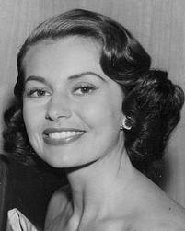
1943 – Lynn Redgrave, English actress (d. 2010)
1945 – Micky Dolenz, American musician (The Monkees)
I had planned a get together with some of my friends for St. Patricks Day at Taprock for lunch, but I have changed my mind. With all this corona virus coming on I decided to cancel. I don't want to be with a big crowd. This virus is so scary. Many events have been canceled because of it. There are even games being played in empty stadiums.
All I know. Nuff said. Happy Daylight Savings Day Sunday. Ciao.
xo Sue Mom Bobo
Daylight Saving Time is currently put to use on the second Sunday in March in the USA. The practice is designed to give people an extra hour of sunlight in the evening hours. This is done by setting the clock ahead one hour at a predetermined date each year.
The practice of Daylight Saving Time (DST) advances clocks during the summer months. It causes us to lose an hour for one day. However, the practice allows people to get up earlier in the morning and experience more daylight in the evening. Typically, users of DST adjust clocks forward one hour near the start of spring. Then, they change them back again in the autumn.
The system has received both advocacy and criticism. Setting clocks forward benefits retail business, sports, and other activities exploiting sunlight after working hours. However, the practice causes problems for evening entertainment and other activities tied to the sun or darkness. For example, farming and fireworks shows are both affected.
Although some early proponents of DST aimed to reduce evening use of incandescent lighting (formerly a primary use of electricity, modern heating and cooling), usage patterns differ greatly. Additionally, research about how DST currently affects energy use is limited or contradictory.
Problems sometimes caused by DST clock shifts include:
- they complicate timekeeping
- can disrupt meetings, travel, billing, record keeping, medical devices, heavy equipment,
- it especially impacts sleep patterns
Software can often adjust computer clocks automatically, but this can be limited and error-prone. Programming is particularly problematic when various jurisdictions change the dates and timings of DST changes.
HOW TO OBSERVE
Besides adjusting our clocks, it’s important to adjust our sleep schedules, too. Many of us go into the time change sleep deprived. Don’t do this during Daylight Saving weekend. Start preparing your body and anyone in your household for an earlier bedtime. That includes pets. Their potty and feeding schedules will need to be adjusted, too. Start a few days before if at all possible. In the end, you and your entire household will be able to benefit from the additional sunlight in the evenings by enjoying outdoor activities without feeling the drag of lack of sleep.
Of course, most importantly, be sure to turn your clocks forward.
DAYLIGHT SAVING TIME HISTORY
George Vernon Hudson from New Zealand proposed the modern version of daylight saving in 1895. Germany and Austria-Hungary were the first countries to use it starting on 30 April 1916.
The energy crisis in the 1970s accelerated the growth of Daylight Saving Time. It has been argued that more natural light in the evening hours uses less electricity due to less artificial lighting requirements. Many retail shops and tourist attractions also enjoy more business.
And today is also................
On March 8, National Oregon Day recognizes the 33rd state to join the union.
Also known as The Beaver State, Oregon’s climate enjoys the warm Pacific air west of the Cascade Mountains and in the lush Willamette Valley. More extreme temperature ranges are experienced in Oregon’s high desert.
Populations of Nez Perce, Chinook, Mollalla, and others settled along the Columbia River Gorge, Klamath Basin, and points east. Many of the first European explorers to arrive sought the elusive Northwest Passage
The Corps of Discovery Expedition followed the Colombia River Gorge, reaching the Pacific Ocean in November of 1805. They would winter at Ft. Clatsop. Soon, pioneers would follow along what would become the Oregon Trail.
The gorge was created from volcanic lava flows and glacial floods. Windsurfers flock to the Columbia due to the powerful, steady winds off of the Cascade Mountains. Kayaking, biking, hiking, skiing and many other outdoor adventures can be found up and down the Gorge, but its icy crown is Mt. Hood. The Stratovolcano’s last eruption occurred in 1865 and was named after Lord Samuel Hood.
South along the Cascade Range, a sleeping volcano forms the mysterious Crater Lake. A well-planned hike along the trails to the remote brilliant, blue waters of the deepest lake in the U.S. is worth the effort. The pristine volcano is a wonder to see. Eastern Oregon takes on the color of a sunset in the undulating Painted Hills near Mitchell.
HOW TO OBSERVE
Explore all the wonders of Oregon! Join National Day Calendar as we celebrate the 33rd state’s history, people and culture. Uncover hidden treasures and explore Oregon’ diverse landscapes!





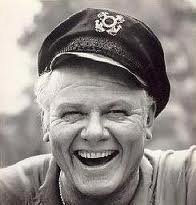
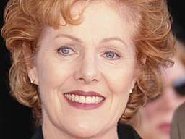
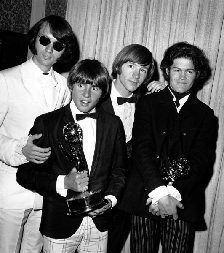
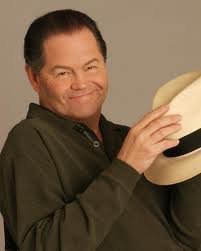
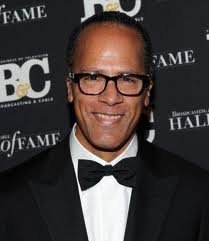


1 comment:
Still keeping our plans to fly to New York City on the 23rd. I figure I might not get another chance so I will have no fear and think positive. I will look at the bright side that maybe there will be fewer tourists at the places we want to see. :)
XO Trisha
Post a Comment